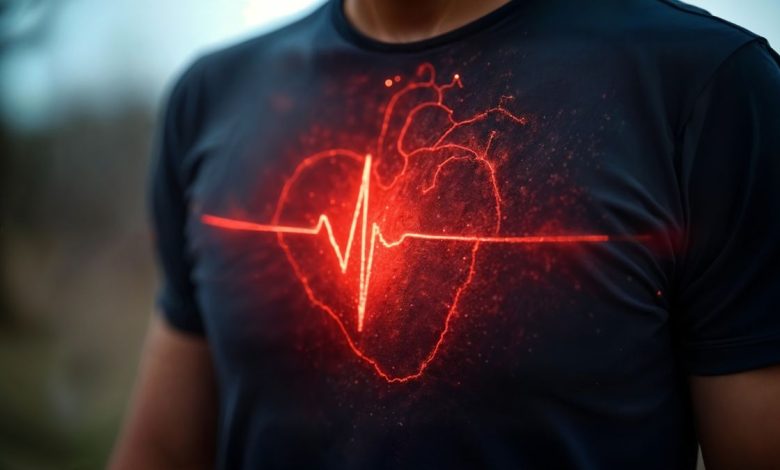10 Warning Signs of a Heart Attack You Should Never Ignore

Heart disease remains one of the leading causes of death in South Africa, and understanding the warning signs of a heart attack could be the difference between life and death. Recognising early symptoms and seeking immediate medical attention can prevent irreversible damage to the heart and even save lives. Here are 10 critical signs of a heart attack that should never be ignored.
What is a Heart Attack?
A heart attack occurs when the flow of oxygen-rich blood to a part of the heart muscle becomes blocked. The lack of oxygen can damage or destroy heart tissue, leading to potentially life-threatening conditions. Heart attacks often come with clear signs and symptoms, but not everyone experiences them in the same way. For some, the symptoms appear gradually, while for others, they can be sudden and intense.
10 Warning Signs of a Heart Attack You Should Never Ignore
It’s essential to be able to recognise the warning signs of a heart attack, as the quicker you act, the better the outcome. The following symptoms should never be overlooked:
1. Chest Pain or Discomfort
The most common symptom of a heart attack is chest pain or discomfort. It can feel like pressure, tightness, or a squeezing sensation in the centre or left side of the chest. This discomfort may last for more than a few minutes, or it may come and go.
2. Pain or Discomfort in Other Areas of the Body
Pain during a heart attack doesn’t always stay in the chest. It may radiate to other areas such as the shoulders, arms, back, neck, jaw, or even the stomach. These symptoms may be subtle or felt more like discomfort rather than severe pain.
3. Shortness of Breath
Many people who experience a heart attack also struggle to breathe. Shortness of breath may occur with or without chest discomfort. If you find it difficult to breathe, especially when combined with other symptoms, seek medical attention immediately.
4. Cold Sweat
Breaking out in a cold sweat is a common heart attack symptom, particularly in the early stages. This may be accompanied by a feeling of nausea or light-headedness, which often signals that the heart isn’t getting enough oxygen.
5. Dizziness or Lightheadedness
Feeling dizzy, lightheaded, or faint is a common indicator that the heart is not pumping efficiently. If these symptoms occur suddenly and without explanation, especially when combined with other signs, immediate medical intervention is needed.
6. Nausea or Vomiting
In some cases, heart attack sufferers may feel nauseous or even vomit. This symptom is more common in women, and it may not be immediately linked to a heart attack.
ALSO READ: Top 10 Foods That Contribute to High Cholesterol
7. Unusual Fatigue
Feeling unusually tired or fatigued, even after a good night’s rest, can be a sign of a heart attack. Women are especially prone to experiencing unexplained tiredness in the days leading up to a heart attack.
8. Pain in the Upper Body
Upper body pain, particularly in the back, arms, and neck, is common. This can be mistaken for general muscle aches, but if it comes with other symptoms like shortness of breath or chest discomfort, it should not be ignored.
9. Indigestion or Heartburn
Although many cases of heartburn or indigestion are harmless, in some cases, they may be signs of a heart attack, especially if they are accompanied by chest pain or discomfort.
10. Sudden Anxiety
Anxiety or a feeling of impending doom is another warning sign often associated with a heart attack. Many people describe this feeling as being overwhelming and out of proportion to the situation. It is important not to disregard this feeling, especially if other symptoms accompany it.
Why You Should Never Ignore These Warning Signs
According to the Centers for Disease Control and Prevention (CDC), a heart attack can lead to severe complications, including heart failure or even death, if not treated immediately. Recognising these warning signs of a heart attack can drastically improve survival rates. If you experience any of these symptoms, especially in combination, it’s critical to call emergency services or visit a healthcare professional immediately.
Gender Differences in Heart Attack Symptoms
It is also important to note that men and women may experience different warning signs of a heart attack. While chest pain is common in both genders, women are more likely to experience symptoms such as nausea, shortness of breath, or pain in the back or jaw. “Women may not recognise these symptoms as signs of a heart attack, which can delay treatment and worsen the outcome.”
What to Do if You Recognise These Symptoms
If you or someone around you exhibits any of the warning signs of a heart attack, do not hesitate. Call emergency services immediately. Prompt medical intervention is essential for the best possible outcome. According to the South African Heart Foundation, “Early medical treatment, such as clot-dissolving medications or surgery, can prevent long-term heart damage and save lives.”
ALSO READ: Top 10 Foods That Contribute to High Cholesterol
Understanding the warning signs of a heart attack and acting quickly can save lives. Whether it’s chest pain, shortness of breath, or other symptoms, recognising these signs early and seeking prompt medical attention can prevent severe consequences. Remember, when it comes to heart attacks, every minute counts. Don’t wait, act quickly, and seek medical help if you experience any of the above symptoms.